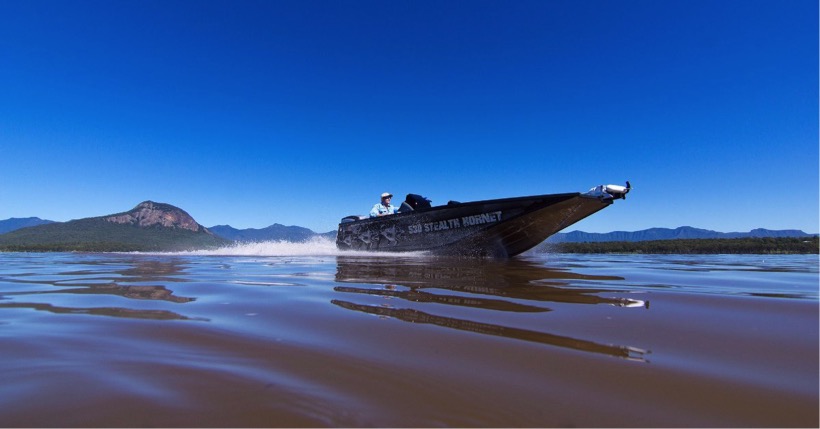
Fishers (professional or recreational) do not think of their vessels as a means of enjoyment, but a necessity. But the boat is not easy to park and secure during periods when you are not using it. Most owners leave them anchored during the winter. If the ship is not prepared for winter, there is a good chance that the humidity and low temperatures will permanently damage it.
The way the vessels are maintained will depend on what they are made of. As for open fishing boats, and generally smaller vessels like hornets, aluminum has proven to be the best solution. It is a robust, lightweight construction material with high corrosion resistance. Plus, maintenance is less demanding than steel or fiberglass craft.
What the other advantages of aluminum boats are, find out at the following link:
https://www.godownsize.com/aluminum-fiberglass-boat/.
Cleaning The Hull
If your boat has been stored and covered during the non-use period, make sure to check for bumps or holes in the hull before you take it out on the water. Even though the vessel was out of use, there was a chance that moisture appeared, and corrosion could occur at that spot. After this check, if you did not find any problematic areas, it is enough to flush the boat with clean water, and you are good to go.
Wash-out with fresh water should be a part of regular boat cleaning every few weeks. As for chemicals, use cleansers that are designed exclusively for aluminum surfaces. They are mainly acid-based and act by dissolving stains and removing traces of oxidation. Do not skip their use, especially if you are sailing on seawater.
When using cleansers, be sure to wear protective gloves and goggles as these agents are very toxic. Also, do not leave the chemicals on the aluminum surfaces for too long as they may damage the varnish and paint. To avoid drip marks, clean part by part of the outside of the hull, and use a sponge (wire brushes are the biggest NO, even for stubborn stains).
Polishing For Extra Shine
Even after a thorough rinse, traces of cleaning agents may remain on the aluminum. Detailed polishing will remove these stains. It would help if you replaced the cloth you use for polishing each time it is dirty. Another benefit of polishing is that these agents contain polymers (which provide that final shine to treated surfaces) that enable UV protection of the aluminum boats.
Prevent Corrosion
Corrosion is a natural phenomenon that occurs on metals exposed to moisture. Vessels that are often on the water will inevitably start rotting someday due to factors from the atmosphere, the environment, but also due to improper maintenance. The rust is almost impossible to avoid under these conditions, but there are ways to slow its spread.
Aluminum boats have a particular layer of rust protection, the so-called anodized coating. The electricity causes the oxidation process on the aluminum surface, and thus makes a layer resistant to moisture. The point is to keep this protective film, so do not use abrasive cleaners, as well as sharp objects to scratch rust and other stains from hull.
The chemicals you use to maintain aluminum vessels, such as Quintrex hornets, must not contain aggressive ingredients, such as sulfur, chlorine, or ammonia. Avoid bleachers or any domestic products for degreasing. Also, thoroughly dry the boat before parking it in storage and covering. Water can stay in some corner of the cockpit, and cause the corrosion.
Cockpit Maintenance
Any glass cleaner will come in handy for windshield cleaning, where stains from water or insects can appear. With this product, you can even clean the instrument panel. For plastic parts, you can use dishwashing liquid and clean water. Seats, depending on whether they are made of vinyl or fabric, treat with means for these materials. If mildew appears on the canvas seats, use anti-microbial agents.
Maintaining a boat on a regular basis is not an easy task, but if you want the vessel (which is not cheap) to serve you for many years, you must devote time to cleaning and repairing the malfunctions. More serious preparation of a smaller boat for the season requires, at least, one well-organized weekend (unless more significant interventions are needed).







